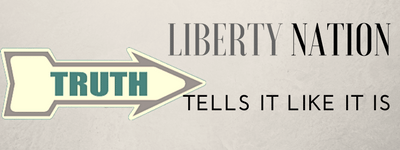For years, Republicans and Democrats have demanded massive infrastructure spending to repair the nation’s bridges and highways and to stimulate the economy. During the 2016 campaign, candidate Donald Trump vowed to make American airports and roads great again with a $1 trillion investment over ten years. Nothing came to fruition in 2017, despite some hints from Secretary of Transportation Elaine Chao. But will a full infrastructure plan happen this year?
![]()
The GOP leadership has made it clear that infrastructure will be at the top of the party’s agenda in 2018. Prior to the Christmas break, the Trump administration was reportedly completing a 70-page infrastructure plan for release in mid-January. Gary Cohn, the director of Trump’s National Economic Council, revealed that Washington may provide $200 billion as part of incentive efforts which would attract $800 billion in spending from state governments, municipalities, and public-private partnerships.
But this concept may generate some pushback from House conservatives and even President Trump. Speaking with Republican leaders on Friday, Trump expatiated that he’s skeptical that depending on PPPs to fund infrastructure endeavors will succeed.
Winning Big League Ahead of Mid-Terms
For the first time since when Trump slammed the lengthy public-works permit process in August, infrastructure is hitting the headlines.
On Tuesday, a bi-partisan coalition of U.S. Senators sat down with administration officials to converse about drafting legislation to allocate $1 trillion to rebuild the nation’s infrastructure. Trump and the Republicans will need Democratic support in the Senate to pass an infrastructure bill.
According to The Hill, White House officials told senators that the full release of the president’s infrastructure package could be delayed until late next month. Other administration aides say the proposal could be released shortly after Trump’s inaugural State of the Union address.
Here is what we know for now: 
First, the president’s two primary objectives are to inject $1 trillion worth of investment in the country’s infrastructure and reduce the extensive construction permitting process to 18 months.
Second, to avoid raising the national debt, Republicans want to utilize private sector investment to fund infrastructure projects. Democrats, meanwhile, intend to use government money to finance improvements to ports, rural hospitals, and railways. Could bi-partisan legislation occur before November’s mid-term contests? The politics of it will make it extremely difficult.
“January’s going to be a big month for us on infrastructure. You will be seeing our infrastructure plan,” Cohn told the Fox Business Network on Friday.
Trump Not Happy with PPPs
D.J. Gribbin, the president’s policy adviser, revealed a vital aspect of the White House plan. Speaking at an infrastructure event hosted by the Hudson Institute, Gribbin outlined an incentive program that provides $200 billion in federal seed money to encourage $800 billion in spending from state and local governments as well as public-private partnerships, otherwise known as PPPs.
Gribbin told an audience:
“Part of what we want to do with our incentive program is say, ‘Listen, if you as a state or local elected official are willing to create a new revenue stream for infrastructure, we as the federal government want to partner with you in doing that.”
The speech transpired a few days before Trump reportedly told Republican leaders that he doesn’t believe relying on PPPs will help fund infrastructure schemes.
A senior GOP Capitol Hill aide told CNBC that the president is not on board with the plan Cohn is putting forward.
And the president may find support from House conservatives. In recent months, White House officials have met the Republican Study Committee and Freedom Caucus to encourage support for infrastructure spending that they might deem nothing more than government stimulus outlays that were routinely witnessed throughout the tenure of President Barack Obama.
Despite the criticism Trump is receiving from the media, Democrats, and Republicans eager to proceed, the president’s apprehension is justified. Infrastructure programs are often crony boondoggles rife with corruption and waste, something Trump has likely witnessed first-hand in the construction and real estate industries.
Former ABC and Fox personality John Stossel produced an excellent segment on infrastructure projects:
Moreover, a crucial aspect of the former president’s economic agenda was to encourage even more PPPs, which went beyond rudimentary public goods, such as internet networks or business incubators. Obama regularly attempted to excuse his government intervention campaigns by arguing that these kinds of partnerships would lead to a new wave of innovation, whether building free wireless broadband networks in rural communities or establishing a system of electronic health records.
Politicians enjoy spending your money on infrastructure, primarily because of the photo opportunities and ribbon-cutting ceremonies. But The Wall Street Journal summed up the conversation neatly in 2015: “The long-term dividends of infrastructure spending are often muddled.”

The government should not be in charge of infrastructure, and it shouldn’t incorporate a backway door to socialism with public-private partnerships. Constructing opulent bridges to nowhere not only wastes taxpayer dollars, it also drains the economy of productive resources for decades. This certainly would not Make America Great Again, and Trump is correct to be hesitant about using the PPPs. If Obama supported it, then you know it’s a bad idea.
Do you agree with President Donald Trump? Give us a call on our LIVE Author chat line to ask us a question or tell us what you think!



